Parashat Vayakhel: Tabernacle Built
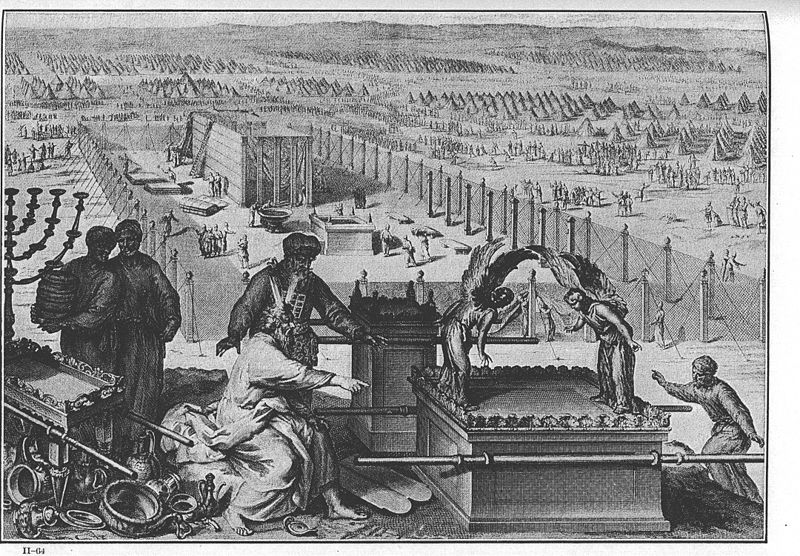
Vayakhel (“He Assembled”) opens as God commands the Israelites to observe the Sabbath. Moses asks for material donations for the building of the Mishkan (Tabernacle), and the people donate. A group of artisans designated by God begin building the Mishkan and its vessels.
Parashat Ki Tisa: Golden Calf
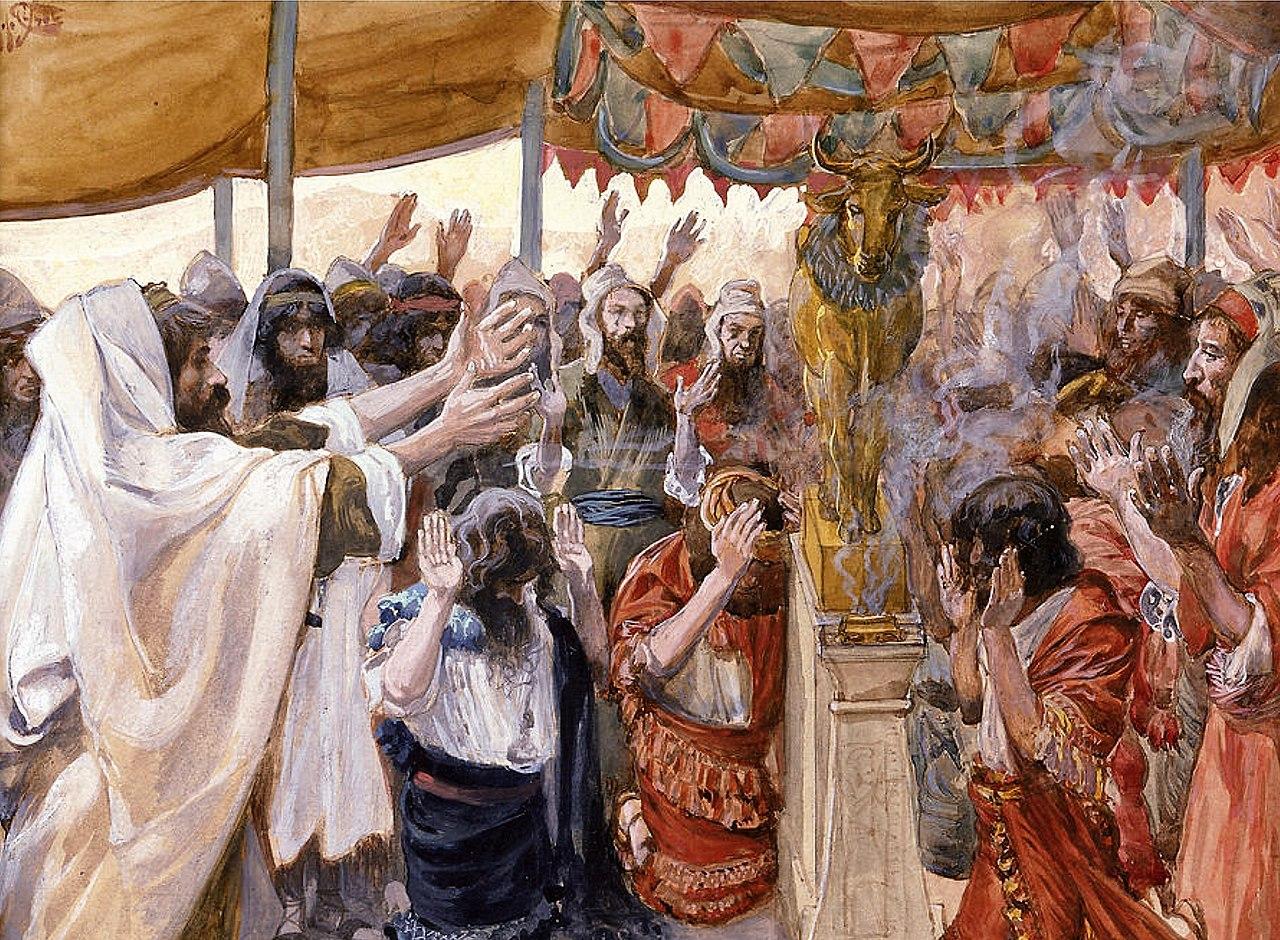
Ki-Tisa (“When You Elevate”) opens as God tells Moses to collect a half-shekel donation from all Israelites and to anoint the Mishkan (Tabernacle), its vessels, and the priests. The Israelites worship the golden calf and Moses breaks the tablets. Moses beseeches God to forgive, and returns with a second set of tablets.
Parashat Tetzaveh: Priestly Garments
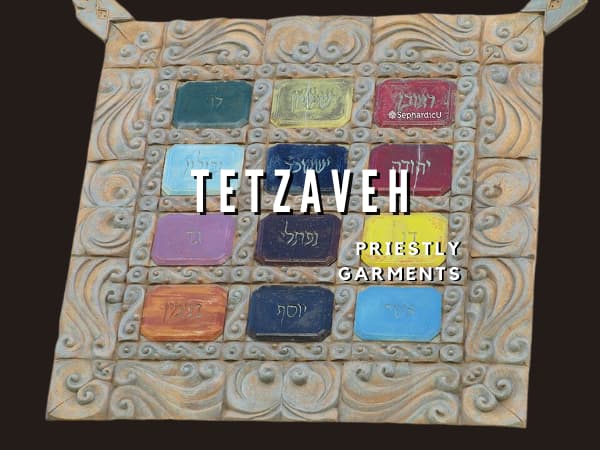
Parashat Tetzaveh reports God’s commands to bring olive oil for the lamp (מְנוֹרָה, Menorah), make sacred garments for the priests, conduct an ordination ceremony, and make an incense altar.
Parashat Terumah: Tabernacle Plans
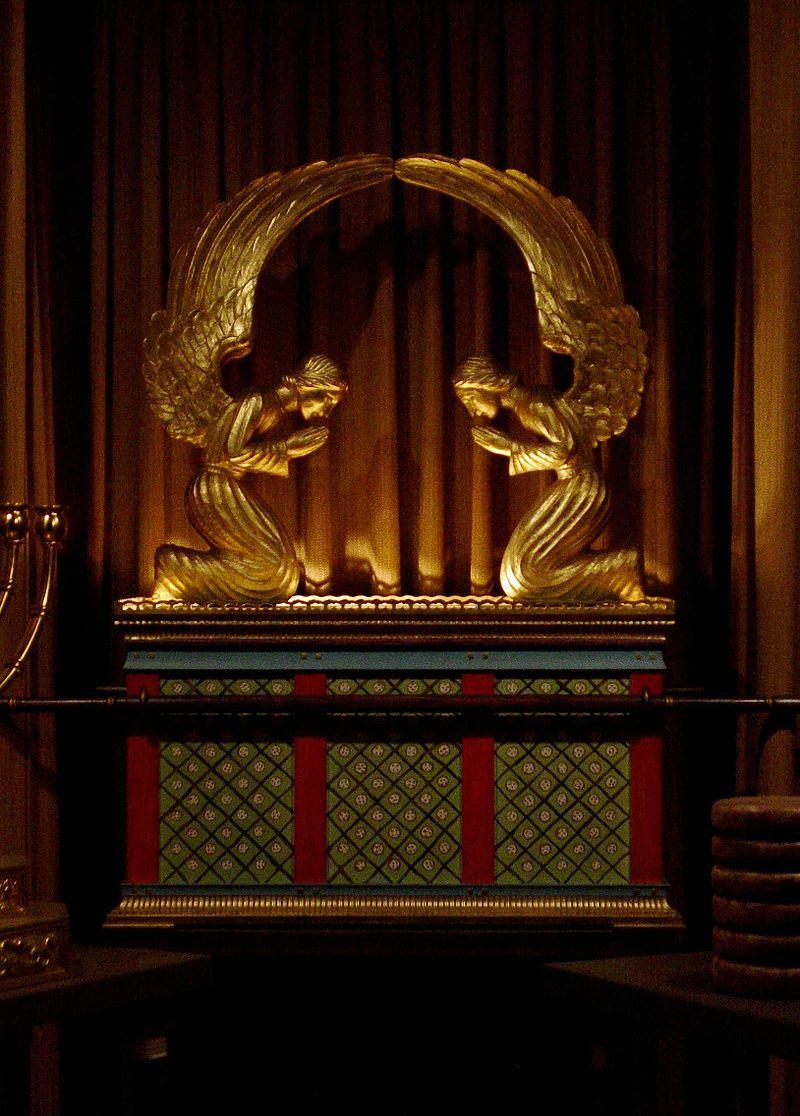
Terumah (“Donation”) opens as God tells Moses to collect donated materials in order to build a dwelling place for God called the Mishkan (Tabernacle). God describes how to build the vessels that will fill the Mishkan – including the ark, table, menorah, and sacrificial altar – as well as the Mishkan’s walls and curtains.
Parashat Mishpatim: Laws and Justice

Parashat Mishpatim sets out a series of laws, which some scholars call the Covenant Code. It reports the people’s acceptance of the covenant with God.
Parashat Yitro: Revelation at Sinai
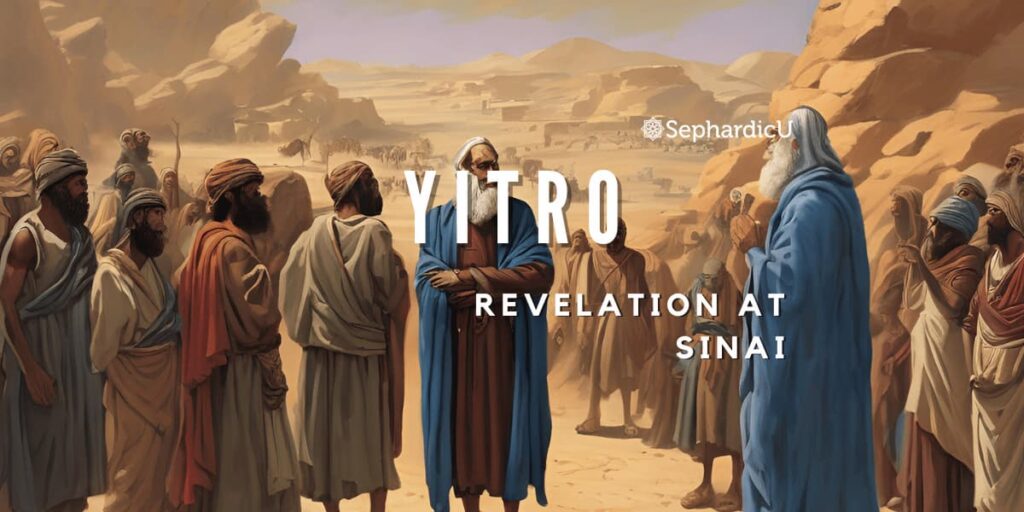
The parasha tells of Yitro’s (Jethro’s) organizational counsel to Moses and God’s revelation of the Ten Commandments to the Israelites at Mount Sinai.
Parashat Beshalach: Crossing the Sea
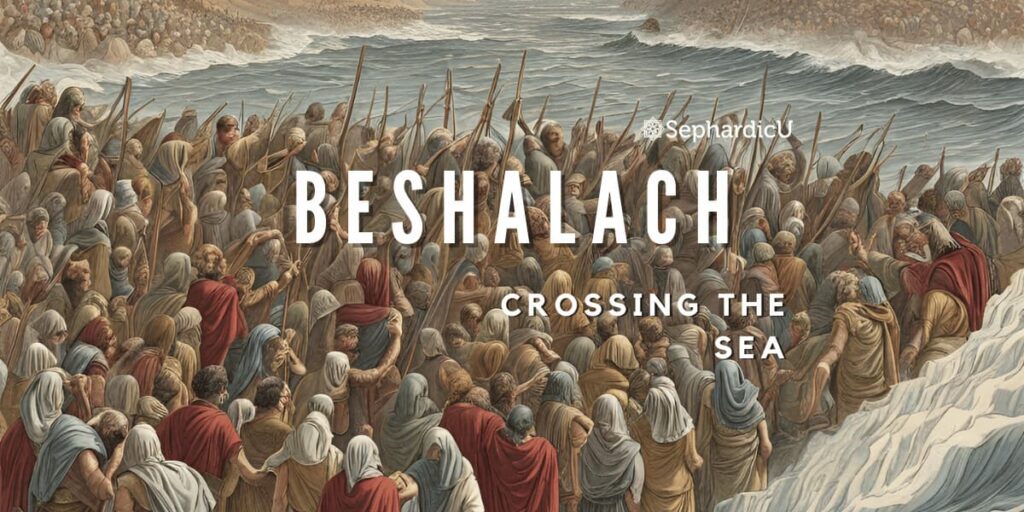
In Parashat Beshalach, Pharaoh changes his mind and chases after the Israelite people with his army, trapping them at the Sea of Reeds.
Parashat Bo: Plagues and Exodus
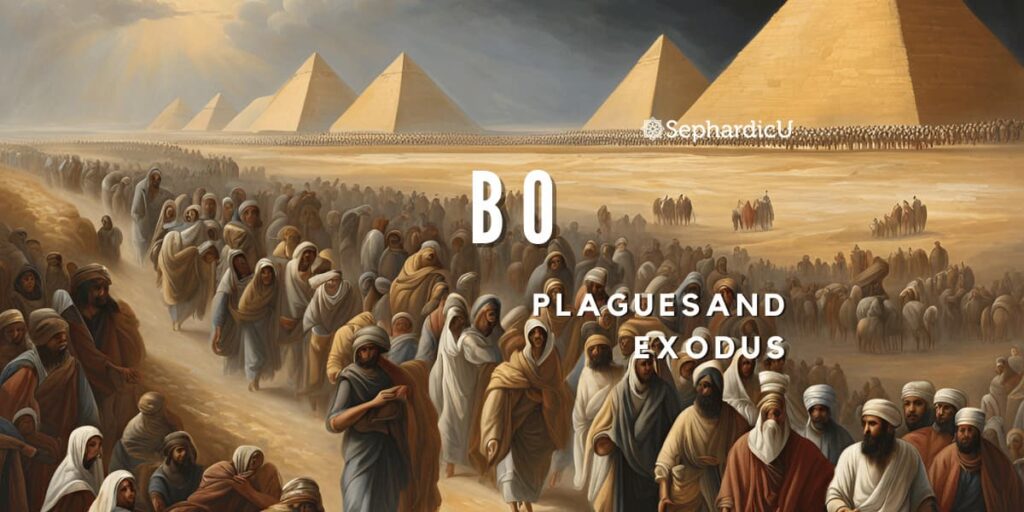
Parashat Bo marks the crescendo of plagues, the birth of Passover, and the Exodus, epitomizing divine justice, liberation, and transformation.
Parashat Va’era: Plagues Begin
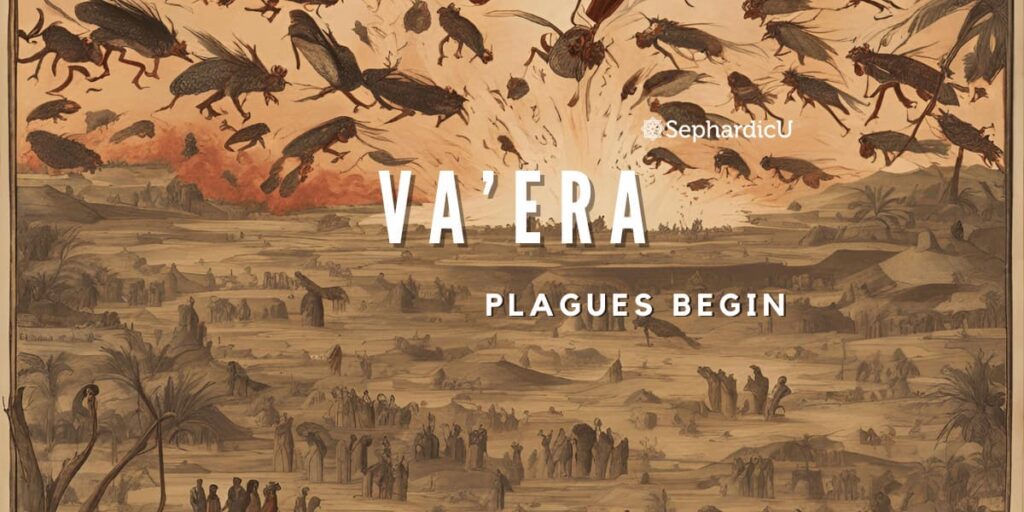
Parashat Vaera tells of the first seven Plagues of Egypt.
Parashat Haazinu
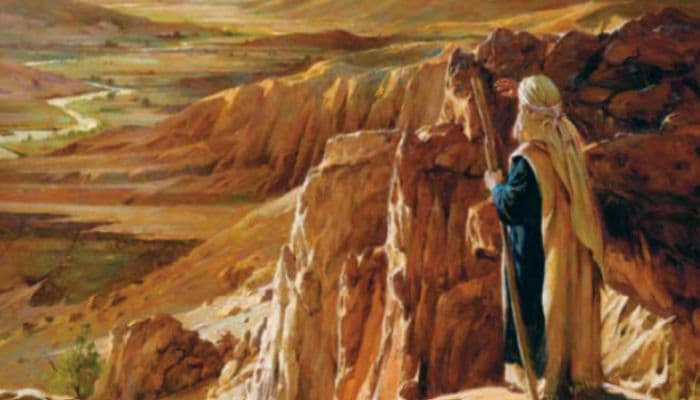
The majority of the Torah portion Haazinu (“Listen In”) is made up of a 70-line “song” that Moses sang to the Israelites on his last day on earth.




